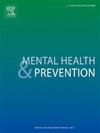消防员创伤后应激和抑郁的心理预测因素:一项为期2年的纵向研究
IF 2.4
Q2 Medicine
引用次数: 0
摘要
背景和目的由于急救人员在工作中暴露于高创伤,他们患创伤后应激障碍(PTSD)和抑郁症的机会增加。精神创伤领域的一个挑战是为高危专业人员制定有效的预防策略。摘要本研究旨在探讨消防员心理韧性、工作中的社会支持、经验回避、重复性消极思维、生活意义、连贯感等可锻性心理因素对创伤后应激障碍和抑郁症状的影响。方法对393名消防员进行基线(PTSD、抑郁和危险因素)测试,并在随后的2年内填写问卷(PTSD和抑郁)。在控制基线症状的情况下,进行回归分析,测试哪一组风险因素最能预测PTSD或抑郁症状。结果较低的工作社会支持和较高的体验回避可预测PTSD症状的发展,较低的生活意义和较高的RNT可预测抑郁症状的发展。结论减少经验回避和RNT,促进工作中的社会支持和生活意义,是急救人员初级预防干预的目标。未来的研究应该测试针对这些危险因素是否真的会减少高危专业人员创伤后精神病理的发展。本文章由计算机程序翻译,如有差异,请以英文原文为准。
Psychological predictors of posttraumatic stress and depression in firefighters: A 2-year longitudinal study
Background and objectives
Due to high trauma exposure in their job, first responders have an increased chance to develop posttraumatic stress disorder (PTSD) and depression. A challenge in the psychotrauma field is to develop effective preventive strategies for high-risk professionals. The aim of this study was to test which malleable psychological factors (resilience, social support at work, experiential avoidance, repetitive negative thinking (RNT), meaning in life, sense of coherence) predict the development of PTSD and depression symptoms in firefighters.
Method
Firefighters (n = 393) were tested at baseline (PTSD, depression and risk factors) and filled out questionnaires in the following 2 years (PTSD and depression). Regression analyses were run testing which set of risk factors best predicted PTSD or depression symptoms at follow-up, when controlling for baseline symptomatology.
Results
Lower social support at work and higher experiential avoidance predicted PTSD symptom development, and lower meaning in life and higher RNT predicted depression symptom development.
Conclusions
Decreasing experiential avoidance and RNT and promoting social support at work and meaning in life seem promising targets for primary prevention interventions in first responders. Future studies should test whether targeting these risk factors would indeed decrease the development of post-trauma psychopathology in high-risk professionals.
求助全文
通过发布文献求助,成功后即可免费获取论文全文。
去求助
来源期刊

Mental Health and Prevention
Medicine-Psychiatry and Mental Health
CiteScore
2.10
自引率
0.00%
发文量
22
审稿时长
24 days
 求助内容:
求助内容: 应助结果提醒方式:
应助结果提醒方式:


